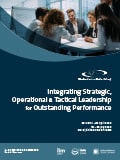An intensive professional development training course on
Design Criteria in
Instrumentation Engineering
A Crucial Component of the Oil & Gas Industries
Why Choose this Training Course?
Take full advantage of the opportunity to attend one of the most beneficial training courses, presently being run. AZTech is proud to announce a 5-day training course entitled, "Design Criteria in Instrumentation Engineering" jam packed with all you need to know, with respect to instrumentation design specific for the oil and gas industries. The control of a plant determines the efficiency of that plant. Therefore, the design of the instrumentation equipment used in the plant (used for measurement and control) is absolutely vital. This would be both from an operational as well as a safety point of view.
This Design Criteria in Instrumentation Engineering training course focuses on getting the plant instrumentation component selection and integration just right. It progresses from selection, documentation, classification, and right through to final project management. At all times, it is actively presented, to fit in with the working environment of the delegates.
This training course will feature:
- Crucial instrumentation design documentation (including data sheets, schedules, P&IDs, etc.)
- Control philosophy, with respect to selected instrumentation
- Equipment and instrumentation tagging philosophy
- Hazardous area classification and appropriate certification
- Instrumentation and final control element (valve) selection and sizing
- Project management
What are the Goals?
By the end of this training course, participants will be able to:
- Assist in crucial decisions for instrument design and selection
- Interpret drawing and diagrams related to newly designed instrumentation
- Have a full understanding of the various process control strategies and how to implement them
- Implement hazardous area zones, and select appropriate instrumentation and equipment for them
- Manage a project appropriately, from design to handover
Who is this Training Course for?
It is irrelevant whether delegate instrumentation design knowledge and experience ranges from novice to advanced. The workshop starts from basic principles, and builds up, with the emphasis on delegate participation. Instructor guidance is delivered on a personal level, and delegates are encouraged to ask as many questions as necessary.
This training course is suitable to a wide range of professionals but will greatly benefit:
- Instrumentation, electrical, mechanical, process and other engineers, specialists and staff
- Management
- Design teams
- Budgeting and financial staff
- Team leaders, supervisors and foremen
How will this Training Course be Presented?
This training course starts off from basics and works its way through to the final management of the project. None-the-less, it is presented in such a way that all delegates (regardless of background) feel comfortable from the very beginning. No-one is left behind, and the instructor takes pride in guiding all delegates along the way, with personal assistance, where required.
Delegates are encouraged to keep an open mind and to immerse themselves in all exercises and discussions, to ensure that maximum learning takes place. Preference will always be given to applications and examples that tie up with the working environment encountered by the delegates. At least 50% of the course is made up of demonstrations/discussions/simulations/exercises.
The Course Content
Day One: Signals, FDS, Vendors Interaction & P&IDs
- Understanding instrumentation signals
- Understanding process diagrams (including block, flow and where the P&ID fits in)
- Functional Design Specification (FDS) and drawing standards
- Vendor pre-qualification, interaction and quotation request
- Tag numbering and naming conventions
- Reading and creating P&IDs, including assorted P&ID symbology
Day Two: Instrumentation, Electrical and Pneumatic Diagrams, and Designing for Proper Acceptance Testing
- Instrumentation drawings and documents, including:
- Instrument selection report, instrument specification, data sheets, loop diagrams & schematics, cable schedules, hook-up diagrams, junction box wiring diagrams, cable racking layout, cable routing diagram, instrumentation index, history sheets, I/O lists, panel layout, power distribution, earthing diagrams and philosophy, PLC schematics, trip/alarm schedules, instrumentation detail, etc.
- Electrical schematics (related to instrumentation projects), including:
- Load lists, main & control circuits, electrical layout, single line diagrams, etc.
- Pneumatic and hydraulic instrumentation schematics
- Acceptance testing
Day Three: HMI Design Considerations, Area Classification, SIS and Instrumentation Selection & Sizing
- PLC, SCADA and DCS design criteria and specification
- Area and classification
- Instrument classification
- Safety Instrumented Systems (SIS) and SIS requirements, from a design point of view
- Instrumentation selection and sizing (including equipment for the most common measurements)
Day Four: Intelligent Communication, Valve Sizing, Protection & Material Selection
- Smart devices, HART and Fieldbus considerations for instrumentation plant design
- Digital data communication aspects
- Control valves and actuators, including selection and sizing
- Equipment protection
- Material selection
Day Five: Redundancy, Control Philosophy and Project Management
- Spares philosophy
- Design considerations for future expansion
- Redundancy and loss of power considerations
- Control philosophy, including:
- Feedback, feed forward, on/off, regulatory, cascade, ratio, advanced control, etc.
- Project management, including:
- Project life cycles, scope, time, cost and quality management, risk, etc.
The Certificate
- An AZTech Certificate of Completion for delegates who attend and complete the training course
DO YOU WANT TOLEARN MORE ABOUT THIS COURSE?
© 2024. Material published by AZTech shown here is copyrighted. All rights reserved. Any unauthorized copying, distribution, use, dissemination, downloading, storing (in any medium), transmission, reproduction or reliance in whole or any part of this course outline is prohibited and will constitute an infringement of copyright.







